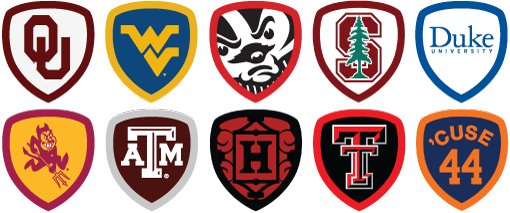Change your study habits, goal approach this school year
 Friday, July 29, 2011 by
Friday, July 29, 2011 by  Emily Chapman
Emily Chapman  Don't you feel more academically centered already? Image courtesy of Flickr user José Feliciano Cerdeño. Licensed under CC BY-NC-ND 2.0.I can't wait for fall to start. (No, seriously. I'm a nerd.) The reason is that--in addition to slightly less oh-god-I'm-melting temperatures where I am--fall brings back regular school. With regular school comes the option for school-year study hacks. This is exciting!
Don't you feel more academically centered already? Image courtesy of Flickr user José Feliciano Cerdeño. Licensed under CC BY-NC-ND 2.0.I can't wait for fall to start. (No, seriously. I'm a nerd.) The reason is that--in addition to slightly less oh-god-I'm-melting temperatures where I am--fall brings back regular school. With regular school comes the option for school-year study hacks. This is exciting!
There are two study hacks that I'm planning to implement during my school year, and they're worth a look for anyone who's into the doctrine of efficient, rather than more, work being your best shot at academic success.* They're both from Study Hacks, (which is a great site to kill time on if you want what is basically old-school 43 Folders for college students).
The first hack that I'm enamored of is the Zen Valedictorian philosophy. It's similar to things we've said here before, but this series of articles breaks it down in a really useful manner. The article goes into more detail, but the main point is that there are two kinds of high-achieving students: the grind, and the zen valedictorian. The first is basically Tracy Flick. It's the kid who in high school was able to run pretty much everything and get straight A's. They get to college and--in general--find themselves unable to keep up that pace, and so crash and burn. The zen valedictorian, on the other hand, cedes control: they have one major that they're good at, and one extracurricular that they're really invested in. They become stars in those two things, and in doing so distinguish themselves without running themselves ragged.
If you've found yourself trying to do the grind thing while in college, make a point to check out those articles before the regular school year starts back up. If you're a freshman about to start at college, take a gander in order to prevent yourself from making the mistake of over-involvement in the first place. School year resolutions--as well as a long, hard look at what you want to change about your behavior in order to make the school year better--are useful, and this is a good one to make.
The second hack that I'm waiting to implement is the stealth study. This is particularly useful for kids who didn't have to study in high school and so never learned how. I'm one of them, and when I got to college, I realized that my lack of developed study skills and my laughably short attention span meant that studying was going to be like pulling teeth for me. I hate doing it.
The techniques outlined in the article--short review sessions, question and answer formats, and studying while walking--seem like a really good option for someone who wants to change up their study routine. The basic idea is that short, engaging bursts of information absorption, done frequently, outweigh the learning done during long, boring sessions later at night. For me, at least, it certainly seems to be true--the things I study early in the day stick around much better. I'm excited to implement the full system.
If you're going to go that route, check out StudyBlue (and its integration with Evernote) to keep your outlines digital, rather than having to print them out the way that the original article suggests. That way you don't have to go out of your way for printing, and you're a little eco-friendlier to boot.
Do you have any other changes you're ready to make for the new school year? Let us know in the comments!
* That would be you, HackCollege reader.











